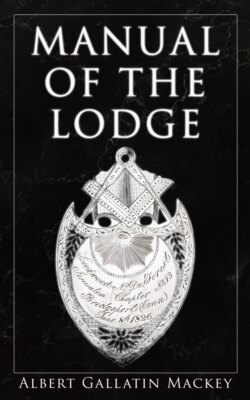Читать книгу Manual of the Lodge - Albert Gallatin Mackey - Страница 16
На сайте Литреса книга снята с продажи.
THE OBLIGATION OF SECRECY.
ОглавлениеThe duty of an Entered Apprentice is embraced by the virtues of silence and secrecy. Speaking of the origin of those duties among Masons in the primitive period of their origin, Brother Nicolson2 says: "As idolatry prevailed upon the earth (immediately after the Deluge), it became necessary for those who held to the worship of the true God to form themselves into a distinct order—not only those who were of the children of Israel, but also others, who retained the traditions of Israel's God, though of Gentile blood. The time arrived when openly to worship the true God was attended with danger; and then it was that our brethren had special recourse to hieroglyphics and symbols to preserve secrecy, lest they should be exposed to the arm of persecution. But as, indeed, the arcana or recondite points of religion were always in possession of the priests alone, among the different idolatrous peoples; and as peculiar forms of initiation were practiced by them, attended with the greatest secrecy (not to say with positive danger to the candidates), the same practice was resorted to by the votaries of the true God, at least so far as secrecy was concerned—secrecy from that time forth ranking as a virtue among Masons, and justly so. Again, to preserve the privileges of the Order, strict secrecy was observed, lest those privileges should become abused. Among the ancients, secrecy stood high as a mark of wisdom.
Calcott, also, on this subject says: "If we turn our eyes back to antiquity, we shall find that the old Egyptians had so great a regard for silence and secrecy in the mysteries of their religion, that they set up the god Harpocrates, to whom they paid particular honor and veneration, who was represented with his right hand placed near the heart, and the left down by his side, covered with a skin, before full of eyes and ears, to signify that, of many things to be seen and heard, few are to be published."
